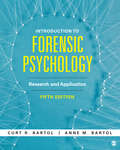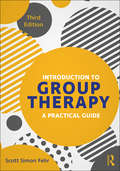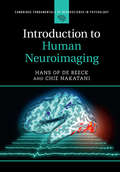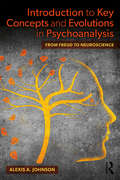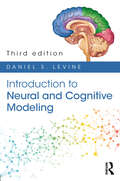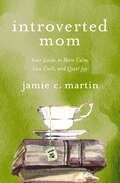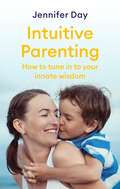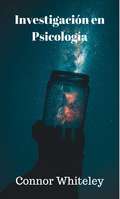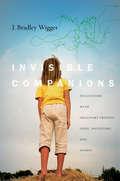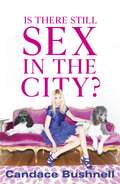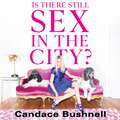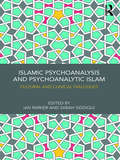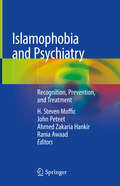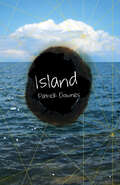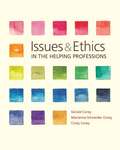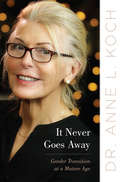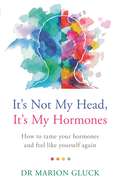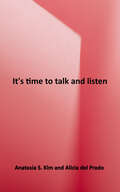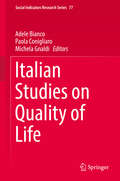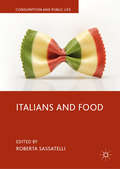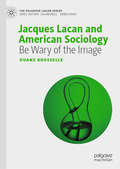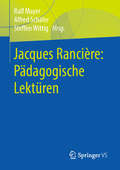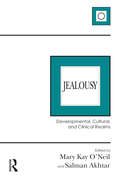- Table View
- List View
Introduction to Forensic Psychology: Research and Application
by Curt R. Bartol Anne M. BartolWritten by authors with extensive experience in the field and in the classroom, Introduction to Forensic Psychology: Research and Application, Fifth Edition, by Curt R. Bartol and Anne M. Bartol, demonstrates how to analyze psychological knowledge and research findings and then apply these findings to the civil and criminal justice systems. Focusing on research-based forensic practice and practical application, this text uses real-life examples and case law discussions to define and explore forensic psychology. This text introduces you to emerging specializations within forensic psychology, including investigative psychology, family forensic psychology, and police and public safety psychology. You will develop a multicultural perspective with an ethnic and racial sensitivity, which is critical to the successful practice of forensic psychology. New to the Fifth Edition: Updated statistics, research, and case law, such as recent Aid in Dying legislation, as well as analysis of recent events, help you see the real-world applications to current events. Updated Focus boxes empower you to dig deeper into current issues, such as mental health courts, community-oriented policing, child abduction, hate crimes, the death penalty, and more. All Focus boxes also contain discussion questions for you to debate in a classroom setting. All new From My Perspective boxes provide you with information about career choices as well as helpful advice about pursuing your career goals. Increased attention to immigration-related issues offers you additional insights into immigration proceedings and ways to consult with the courts. Additional coverage of human trafficking and online sexual predators enables you to better understand the psychological effects on victims and the services available to help. Current research on violent video games, cyberbullying, and cyberstalking provides real examples of the effects of violent media. New research on juveniles allows you to see the important contributions of neuropsychologists, particularly in terms of brain development in adolescents and promising community-based treatment approaches for juveniles.
Introduction to Forensic Psychology: Research and Application
by Curt R. Bartol Anne M. BartolWritten by authors with extensive experience in the field and in the classroom, Introduction to Forensic Psychology: Research and Application, Fifth Edition, by Curt R. Bartol and Anne M. Bartol, demonstrates how to analyze psychological knowledge and research findings and then apply these findings to the civil and criminal justice systems. Focusing on research-based forensic practice and practical application, this text uses real-life examples and case law discussions to define and explore forensic psychology. This text introduces you to emerging specializations within forensic psychology, including investigative psychology, family forensic psychology, and police and public safety psychology. You will develop a multicultural perspective with an ethnic and racial sensitivity, which is critical to the successful practice of forensic psychology. New to the Fifth Edition: Updated statistics, research, and case law, such as recent Aid in Dying legislation, as well as analysis of recent events, help you see the real-world applications to current events. Updated Focus boxes empower you to dig deeper into current issues, such as mental health courts, community-oriented policing, child abduction, hate crimes, the death penalty, and more. All Focus boxes also contain discussion questions for you to debate in a classroom setting. All new From My Perspective boxes provide you with information about career choices as well as helpful advice about pursuing your career goals. Increased attention to immigration-related issues offers you additional insights into immigration proceedings and ways to consult with the courts. Additional coverage of human trafficking and online sexual predators enables you to better understand the psychological effects on victims and the services available to help. Current research on violent video games, cyberbullying, and cyberstalking provides real examples of the effects of violent media. New research on juveniles allows you to see the important contributions of neuropsychologists, particularly in terms of brain development in adolescents and promising community-based treatment approaches for juveniles.
Introduction to Group Therapy: A Practical Guide (Third Edition)
by Scott Simon FehrThe main objective of Introduction to Group Therapy is to give the reader a solid understanding of group therapy while simultaneously creating scholars in the group therapy paradigm. This unique book combines theory and practice in a reader-friendly format, presenting practical suggestions to guide both students and novice group therapists through the nuts and bolts of running a group. This third edition continues the clinically relevant and highly readable work of the previous editions, demonstrating the therapeutic power group therapy has in conflict resolution and personality change. A proven resource for introductory and advanced coursework, the book promotes group therapy at the grassroots level – students – where it has the most opportunity to be put into effect.
Introduction to Human Neuroimaging (Cambridge Fundamentals of Neuroscience in Psychology)
by Hans Op de Beeck Chie NakataniDeveloped specifically for students in the behavioral and brain sciences, this is the only textbook that provides an accessible and practical overview of the range of human neuroimaging techniques. Methods covered include functional and structural magnetic resonance imaging, positron emission tomography, electroencephalography, magnetoencephalography, multimodal imaging, and various brain stimulation methods. Experimental design, image processing, and statistical inference are also addressed, with chapters for both basic and more advanced data analyses. Key concepts are illustrated through research studies on the relationship between brain and behavior, and practice questions are included throughout to test knowledge and aid self-study. Offering just the right amount of detail for understanding how major imaging techniques can be applied to answer neuroscientific questions, and the practical skills needed for future research, this is an essential text for advanced undergraduate and graduate students in psychology, neuroscience, and cognitive science programs taking introductory courses on human neuroimaging.
Introduction to Key Concepts and Evolutions in Psychoanalysis: From Freud to Neuroscience
by Alexis A. JohnsonIntroduction to Key Concepts and Evolutions in Psychoanalysis offers an accessible starting point to understanding psychoanalysis by focusing on seven key psychoanalytic models and their creators and how the field has evolved over time from Sigmund Freud’s original ideas. The book is based on the premise that Freud started a conversation over 100 years ago that continues to this day: who are we, why do we suffer so, and how can others help? Alexis A. Johnson seeks to make the invariably complex and sometimes contradictory terms and concepts of psychoanalysis more accessible for those being introduced to psychoanalysis for the first time, integrating them into a cohesive narrative, whilst using a broadly developmental perspective. Each model is given space and context, matched with relevant case studies drawn from the author’s own clinical practice. Written in an approachable, jargon-free style, this book brings to life the creators of the models using case studies to illustrate the ‘healing maps’ and models they have developed. The author methodically adds layer upon layer of increasingly challenging insights: Which model is useful or appropriate, and when and how exactly is it useful as part of the healing paradigm? Rather than aligning with any one model, Johnson makes the case that drawing upon aspects of all of these sometimes-competing ideas at various times is important and healthy. Introduction to Key Concepts and Evolutions in Psychoanalysis will appeal to undergraduate students of psychology encountering psychoanalysis for the first time, as well as trainees in psychoanalysis and those working across other branches of the mental health profession wishing to understand and drawn upon fundamental psychoanalytic ideas.
Introduction to Neural and Cognitive Modeling: 3rd Edition
by Daniel S. LevineThis textbook provides a general introduction to the field of neural networks. Thoroughly revised and updated from the previous editions of 1991 and 2000, the current edition concentrates on networks for modeling brain processes involved in cognitive and behavioral functions. Part one explores the philosophy of modeling and the field’s history starting from the mid-1940s, and then discusses past models of associative learning and of short-term memory that provide building blocks for more complex recent models. Part two of the book reviews recent experimental findings in cognitive neuroscience and discusses models of conditioning, categorization, category learning, vision, visual attention, sequence learning, behavioral control, decision making, reasoning, and creativity. The book presents these models both as abstract ideas and through examples and concrete data for specific brain regions. The book includes two appendices to help ground the reader: one reviewing the mathematics used in network modeling, and a second reviewing basic neuroscience at both the neuron and brain region level. The book also includes equations, practice exercises, and thought experiments.
Introverted Mom: Your Guide to More Calm, Less Guilt, and Quiet Joy
by Jamie C. MartinMotherhood is beautiful; motherhood is hard. All moms understand this paradoxical truth. Yet introverted mothers face unique challenges. When our quiet nature collides with our often loud role, frustration and guilt result. We wonder why motherhood feels at odds with our personality, and in our darkest moments fear we're simply not cut out for the job.In Introverted Mom, author Jamie C. Martin lifts the false burdens and negative stereotypes off your shoulders, letting you know you're not alone. Your steady strength is exactly what your family needs in this chaotic world. And when you understand and accept your God-given personality, you'll discover a freedom you may never have experienced before.Jamie shares vulnerable stories from her own life as well as thoughts from other kindred-spirit moms, helping you add more calm to your days. Her practical suggestions and creative inspiration, combined with quotes and insights from four well-known introverted writers, point you back toward hope, laughter, and quiet joy. Whether you've just realized you’re an introvert, or if you've known it all along, this book is for you. It's time to honor who you are and savor life as an introverted mom.
Intuitive Parenting: How to tune in to your innate wisdom
by Jennifer DayReconnect with your parenting intuition and the innate wisdom it provides with simple, practical steps. Reduce stress and overwhelm, improve your confidence and your relationship with your child or children.'In her wise book, Jennifer Day makes a powerful case for parental confidence . . . Intuitive Parenting offers practical strategies for overcoming the stresses of parenting and embracing our own inner capacities' - Daniel H. Pink, bestselling author of DriveParents today are inundated with information and expert advice, often contradictory and invariably overwhelming. This results in anxiety, insecurity and stressed parenting that inevitably drives wedges between parents and children instead of the much-needed connection. This book offers swift, practical and to-the-point information to help you reconnect with your innate wisdom, giving you the confidence to trust your own parenting intuition. · Learn what gets in the way of connecting to your intuition and how to eliminate it· Discover the key - and underused - ingredient to your own parenting blueprint· Learn the three levels of influence you have on your child and how (and why) to align them· Discover the one simple tool to managing your stress - so easy your child can do it too· Learn how to give unspoken support and how to practice true listening The practical everyday applications this book offers will reduce your anxiety and help you to connect and be fully present with your child, improving relationships for you both.
Intuitive Parenting: How to tune in to your innate wisdom
by Jennifer DayReconnect with your parenting intuition and the innate wisdom it provides with simple, practical steps. Reduce stress and overwhelm, and improve your confidence and relationships.Parents today are inundated with information and expert advice, often contradictory and invariably overwhelming. This results in anxiety, insecurity and stressed parenting that inevitably drives wedges between parents and children instead of the much-needed connection. This book offers swift, practical and to-the-point information to help you reconnect with your innate wisdom, giving you the confidence to trust your own parenting intuition. · Learn what gets in the way of connecting to your intuition and how to eliminate it· Discover the key - and underused - ingredient to your own parenting blueprint· Learn the three levels of influence you have on your child and how (and why) to align them· Discover the one simple tool to managing your stress - so easy your child can do it too· Learn how to give unspoken support and how to practice true listening The practical everyday applications this book offers will reduce your anxiety and help you to connect and be fully present with your child, improving relationships for you both.
Investigación en Psicología
by Connor Whiteley¿Cómo se investiga la psicología? ¿Qué sesgos afectan a la investigación? ¿Qué es la investigación cualitativa? Estas son sólo algunas de las preguntas interesantes e importantes que exploraremos en este libro mientras exploramos cómo se investiga la psicología. Así que, únanse a mí mientras exploramos juntos el fascinante mundo de la investigación psicológica en este libro con un tono de conversación intrigante que claramente desglosa y evalúa críticamente los conceptos y teorías para que todos puedan disfrutar de las maravillas de la psicología.... ¡y no tengan un dolor de cabeza al final!
Invisible Companions: Encounters with Imaginary Friends, Gods, Ancestors, and Angels (Spiritual Phenomena)
by J. Bradley WiggerFrom the US to Nepal, author J. Bradley Wigger travels five countries on three continents to hear children describe their invisible friends—one-hundred-year-old robins and blue dogs, dinosaurs and teapots, pretend families and shape-shifting aliens—companions springing from the deep well of childhood imagination. Drawing on these interviews, as well as a new wave of developmental research, he finds a fluid and flexible quality to the imaginative mind that is central to learning, co-operation, and paradoxically, to real-world rationality. Yet Wigger steps beyond psychological territory to explore the religious significance of the kind of mind that develops relationships with invisible beings. Alongside Cinderella the blue dog, Quack-Quack the duck, and Dino the dinosaur are angels, ancestors, spirits, and gods. What he uncovers is a profound capacity in the religious imagination to see through the surface of reality to more than meets the eye. Punctuated throughout by children's colorful drawings of their see-through interlocutors, the book is highly engaging and alternately endearing, moving, and humorous. Not just for parents or for those who work with children, Invisible Companions will appeal to anyone interested in our mind's creative and spiritual possibilities.
Is There Still Sex in the City?
by Candace BushnellCandace Bushnell gets personal in her new memoir - an investigation into what happens when a woman of a certain age (ok, let's call it 'middle') finds herself not-so-young, free and single in the city.MILFs, cougars, love, sex, divorce - Candace's brilliantly funny and honest first-person account lays bare the truth behind middle-aged romance. Among other revelations we read her Modern Day Cougar Compendium, including guidance on such important matters as the Unexpected Cub Pounce (sometimes the cub does the pouncing); what to do when your age-appropriate date asks you to pay for his kitchen renovation, and the Pluses and Minuses of Being Older and Wiser.
Is There Still Sex in the City?
by Candace BushnellCandace Bushnell gets personal in her new memoir - an investigation into what happens when a woman of a certain age (ok, let's call it 'middle') finds herself not-so-young, free and single in the city.MILFs, cougars, love, sex, divorce - Candace's brilliantly funny and honest first-person account lays bare the truth behind middle-aged romance. Among other revelations we read her Modern Day Cougar Compendium, including guidance on such important matters as the Unexpected Cub Pounce (sometimes the cub does the pouncing); what to do when your age-appropriate date asks you to pay for his kitchen renovation, and the Pluses and Minuses of Being Older and Wiser.
Islamic Psychoanalysis and Psychoanalytic Islam: Cultural and Clinical Dialogues
by Ian Parker Sabah SiddiquiThis pioneering volume brings together scholars and clinicians working at the intersection of Islam and psychoanalysis to explore both the connections that link these two traditions, as well as the tensions that exist between them. Uniting authors from a diverse range of traditions and perspectives, including Freudian, Jungian, Lacanian, Object-Relations, and Group-Analytic, the book creates a dialogue through which several key questions can be addressed. How can Islam be rendered amenable to psychoanalytic interpretation? What might an ‘Islamic psychoanalysis’ look like that accompanies and questions the forms of psychoanalysis that developed in the West? And what might a ‘psychoanalytic Islam’ look like that speaks for, and perhaps even transforms, the forms of truth that Islam produces? In an era of increasing Islamophobia in the West, this important book identifies areas where clinical practice can be informed by a deeper understanding of contemporary Islam, as well as what it means to be a Muslim today. It will appeal to trainees and practitioners of psychoanalysis and psychotherapy, as well as scholars interested in religion and Islamic studies.
Islamophobia and Psychiatry: Recognition, Prevention, And Treatment
by H. Steven Moffic John Peteet Ahmed Zakaria Hankir Rania AwaadThe book begins by covering the general and clinical challenges that are unique to Muslims, drawing from an internationally, ethnically, and intergenerationally diverse pool of experts. The text covers not only how psychiatrists and other clinicians can intervene successfully with patients, but how we as clinicians can have a role in addressing other societally connected mental health challenges arising from Islamophobia. The text addresses three related but distinct areas of interest: Islamophobia as a destructive force, Islam as a religion that is threatened by stigma and misinformation, and the novel intersection of these forces with the field of psychiatry. Islamophobia and Psychiatry is a vital resource for all clinicians and clinicians in training who may encounter patients struggling with these issues, including adult and child psychiatrists, psychologists, primary care physicians, counselors, social workers, and others.
Island
by Patrick DownesA teenaged boy struggles as he watches his family and relationships fracture after the death of his mother, and is now faced with the terrible possibility that his twin brother may have just killed their father.Seventeen-year-old Rad comes home to find his father lying broken and dead at the bottom of the ravine behind their house. Rad’s twin brother, shaken but very much alive, had watched their father fall.Desperate to understand what has happened before calling the police, Rad confronts his brother and the complicated landscape of their past. He reconstructs not just the circumstances leading to his father’s death, but the history of his family.How can a family simply disintegrate? Were they ever happy, or were the roots of unhappiness always there? What plagued his father? What plagues Rad?As the time comes to do the right thing, the question remains. Did his brother kill their father? And what will happen to the boys now?
Issues and Ethics in the Helping Professions (10th Edition)
by Gerald Corey Marianne Schneider Corey Cindy CoreyUp-to-date and comprehensive, this practical best seller provides students with the basis for discovering their own guidelines for helping within the broad limits of professional codes of ethics and divergent theoretical positions. Respected authors Gerald Corey, Marianne Corey, and Cindy Corey raise what they consider to be central issues, present a range of diverse views on the issues, discuss their position, and provide opportunities for students to refine their thinking and develop an informed position. With new material in every chapter and an emphasis on critical thinking, Issues and Ethics in the Helping Professions, 10th Edition, is useful for students as well as practicing professionals.
It Never Goes Away: Gender Transition at a Mature Age
by Anne Lauren KochIf you are transgendered, the feeling of wanting your body to match the sex you feel you are never goes away. For some, though, especially those who grew up before trans people were widely out and advocating for equality, these feelings were often compartmentalized and rarely acted upon. Now that gender reassignment has become much more commonplace, many of these people may feel increasing pressure to finally undergo the procedures they have always secretly wanted. Ken Koch was one of those people. Married twice, a veteran, and a world traveler, a health scare when he was sixty-three prompted him to acknowledge the feelings that had plagued him since he was a small child. By undergoing a host of procedures, he radically changed his appearance and became Anne Koch. In the process though, Anne lost everything that Ken had accomplished. She had to remake herself from the ground up. Hoping to help other people in her age bracket who may be considering transitioning, Anne describes the step by step procedures that she underwent, and shares the cost to her personal life, in order to show seniors that although it is never too late to become the person you always knew you were, it is better to go into that new life prepared for some serious challenges. Both a fascinating memoir of a well-educated man growing up trans yet repressed in the mid-twentieth century, and a guidebook to navigating the tricky waters of gender reassignment as a senior, It Never Goes Away shows how what we see in the television world of Transparent translates in real life.
It's Not My Head, It's My Hormones: How to tame your hormones and feel like yourself again
by Marion Gluck"Knowledge is power! We can't all be doctors, but we can all understand our hormone health. This is a practical and inspirational book dedicated to helping women be their mental and physical best at any age." Jeanette WintersonWhat if you're not actually going crazy?What if you don't need antidepressants after all?What if it's not your head, but your hormones?When your hormones are out of control, you lose control, and it can feel like you've turned into someone else entirely. Women's hormonal issues are routinely misdiagnosed and misunderstood by their doctors, but the lucky ones find their way to Dr Marion Gluck's clinic where she empowers them with her unique knowledge on how to take back control of their bodies and minds.With her expert advice from puberty to post-menopause, let Dr Gluck show you how hormones can become your allies in optimising your mental health and physical wellbeing. It's time to feel like yourself again.Dr Marion Gluck is world-renowned as a pioneer in the use of bio-identical hormones for women. She has over 30 years' experience working as a medical doctor with women all around the world. Based in London, she now trains doctors internationally on this life-changing treatment.
It's Time To Talk (and Listen): How to Have Constructive Conversations about Race, Class, Sexuality, Ability and Gender in a Polarized World
by Anatasia S. Kim Alicia Del PradoConversations about controversial topics can be difficult, painful, and emotionally charged. This user-friendly guide will help you engage in effective, compassionate discussions with family, friends, colleagues, and even strangers about race, immigration, gender, marriage equality, sexism, marginalization, and more. <p><p>We talk every day—and we often do it without thinking. But, as you well know, there are some things that are harder to talk about—especially issues pertaining to politics, culture, lifestyle, and diversity. If you’ve ever struggled in a conversation about a “controversial” topic with a loved one, work colleague, or even a stranger, you know exactly how uncomfortable and heated the discussion can become. And even if you are one of the lucky few that expresses themselves eloquently, how do you move beyond mere “lip service” and turn words into actionable change? <p><p>This groundbreaking book will show you how to get to that important next level in difficult conversations, to talk in an authentic and straightforward way about culture and diversity, and to speak from the heart with tools from the head. Using a simple eight-step approach, you’ll learn communication strategies that are supported by research and have been practiced in classrooms, work meetings, therapy sessions, and more. <p><p>We constantly hear about friends and colleagues whose family members are not speaking to each other because of different political opinions, who’ve exchanged words that have mutually offended one another. If silence is one end of the continuum and verbal conflict anchors the other, how do we reach a middle ground? How do we take part in the “in between” spaces where both parties can speak and listen? <p><p>With this book as your guide, you’ll learn to navigate these difficult conversations, and take what you’ve learned beyond the conversation and out into the world—whether it’s through politics, social justice movements, or simply expanding the minds of those around you.
Italian Studies on Quality of Life (Social Indicators Research Series #77)
by Adele Bianco Paola Conigliaro Michela GnaldiThis volume provides an overview of the ways the Italian school of quality of life studies addresses well-being and quality of life, from both a substantive and a methodological point of view. It discusses various topics such as those of equitable and sustainable wellbeing, lifestyles, the organization of economy and welfare, as well as aspects related to the measurement of quality of life in small towns, institutional transparency and corruption prevention indicators. Chapters presented in this volume are drawn from papers presented at the conferences of the Italian Association for Quality of Life Studies (AIQUAV) held in Florence, Italy, in 2015 and 2016. The volume is organised into three parts. The first part is devoted to methods and indicators for research on quality of life, the second part to social sustainability, lifestyles, cultural aspects and local applications, and the third to economy, welfare and quality of life. The volume hosts contributions that are interdisciplinary in scope and mirror the complexity of the globalized world.
Italians and Food (Consumption and Public Life)
by Roberta SassatelliThis book is a novel and original collection of essays on Italians and food. Food culture is central both to the way Italians perceive their national identity and to the consolidation of Italianicity in global context. More broadly, being so heavily symbolically charged, Italian foodways are an excellent vantage point from which to explore consumption and identity in the context of the commodity chain, and the global/local dialectic. The contributions from distinguished experts cover a range of topics including food and consumer practices in Italy, cultural intermediators and foodstuff narratives, traditions of production and regional variation in Italian foodways, and representation of Italianicity through food in old and new media. Although rooted in sociology, Italians and Food draws on literature from history, anthropology, semiotics and media studies, and will be of great interest to students and scholars of food studies, consumer culture, cultural sociology, and contemporary Italian studies.
Jacques Lacan and American Sociology: Be Wary of the Image (The Palgrave Lacan Series)
by Duane RousselleIn this Palgrave Pivot, Duane Rousselle aims to disrupt the hold that pragmatist ideology has had over American sociology by demonstrating that the social bond has always been founded upon a fundamental and primordial bankruptcy. Using the Lacanian theory of “capitalist discourse,” Rousselle demonstrates that most of early American sociology suffered from an inadequate account of the “symbolic” within the mental and social lives of the individual subject. The psychoanalytic aspect of the social bond remained theoretically undeveloped in the American context. Instead it is the “image,” a product of the imaginary, which takes charge over any symbolic function. This intervention into pragmatic sociology seeks to recover the tradition of “grand theory” by bringing psychoanalytical and sociological discourse into fruitful communication with one another.
Jacques Rancière: Pädagogische Lektüren
by Ralf Mayer Alfred Schäfer Steffen WittigEs sind die zugleich politischen und ästhetischen Einsatzpunkte Jacques Rancières, die das pädagogische Nachdenken herausfordern: Angesprochen sind damit etwa die Intervention in ein- wie ausschließende ‚Ordnungen des Sinnlichen‘, die Artikulation eines ‚Unvernehmens‘ über die Unterstellung von je spezifischen Gleichheitsmotiven und das Plädoyer für ein ästhetisches Regime, das in unterschiedlichen Feldern definitive und privilegierte Sichtweisen irritiert. Diese Herausforderungen gelten nicht nur für Begründungen und Qualifizierungen von Praktiken und Institutionen; ebenso erscheinen pädagogische Problemstellungen stets disziplinübergreifend in Spannungsfeldern von Politik und (polizeilicher) Ordnung situiert.
Jealousy: Developmental, Cultural, and Clinical Realms
by Salman Akhtar Mary Kay O’NeilJealousy is a human feeling experienced by everyone in varying intensities, at different times and phases of growth. Frequently confused, jealousy and envy are often intertwined. Even within the psychoanalytic literature confusion persists and much less has been written about jealousy than envy. However, unlike envy, jealousy involves three entities and affects all people involved. It can be painful as other difficult-to-bear feelings (e.g. shame, guilt anger, hatred) underlie jealousy. Yet, total absence of jealousy renders a person less human, less relational. In analytic terms jealousy is a defense against emotional anguish. This book begins with an extensive overview of the nature, developmental origins and poignant cultural (especially poetic) allusions to jealousy, emphasizing that it is through artistic expression that a true understanding of this frequently deeply disturbing feeling is achieved. It closes with a thoughtful summary, synthesis and critique of the chapters by 12 distinguished analysts.
